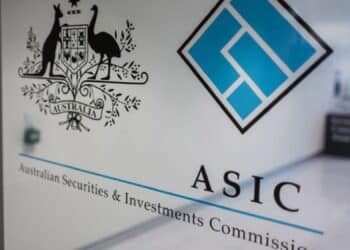Recognising a “persistent alpha opportunity” that exists in the Australian small-cap space, the $256 billion Future Fund has handed its active small caps investment mandate to fund manager Maple-Brown Abbott.
According to the Future Fund, the divergence of economies means companies can better distinguish themselves in a more difficult environment and, as a result, active alpha-seeking strategies in its $65 billion listed equities program are increasingly attractive.
It had announced earlier this year that it would be investing in domestic small-cap equities for the first time as part of its return to active equity management.
“Throughout the year our research and analysis have concluded that a persistent alpha opportunity exists in the Australian small-cap space, underpinned by a significant information inefficiency,” the Future Fund stated in its FY23 Year in Review.
“Relative to other segments of the domestic equity market, Australian small company stocks have a lower level of analyst coverage, higher dispersion in analyst forecasts and greater forecasting error.”
The sovereign wealth fund noted the broad, diversified nature of the small company benchmark permits active managers to capitalise on proprietary insights by taking meaningful positions relative to the index and generate stock-specific alpha.
Commenting on the mandate, Maple-Brown Abbott’s chief executive and managing director Sophia Rahmani said: “We are proud of this partnership with Australia’s sovereign wealth fund and we look forward to working with the Future Fund as it seeks to achieve its long-term investment mandate.”
The 40-year-old fund manager has some 60 staff in Sydney and almost $9 billion in assets under management as at 31 August 2023.
Earlier this year, the Future Fund had announced it would be switching tracks and moving back to active management for its equity allocations, focusing on fund manager skill in light of higher interest rates and inflation.
The fund’s CEO Raphael Arndt highlighted how changes in domestic markets had made small-cap equities attractive to the fund for the first time.
“A previously considered safe investment like an office building or shopping centre is no longer safe. A large-cap company can be split up, regulated or its markets disrupted. There are no set-and-forget investments anymore,” he told audience members at the AFR Alpha Live event.
Phillip Hudak, co-portfolio manager of Maple-Brown Abbott’s Australian Small Companies fund, noted Australian small caps have had a strong track record of delivering capital appreciation in excess of other equity asset classes.
“Since the early 2000s, the small ordinaries index has materially underperformed the ASX 200 index but the real value-add of investing in Australian small caps is not so much the index investment, but in relation to the active management that comes through from there,” Hudak told Money Management.
“I believe Australian small caps is one of the last remaining parts of the market that’s inefficiently priced given, as you go further down the market capitalisation spectrum, research coverage decreases, which increases the probability of those investors that have an information advantage to exploit that there. On top of that, there’s high growth potential [in] getting early exposure to exciting growth areas that are underappreciated by the markets.”
The fund manager’s investment philosophy lies in constructing a portfolio of undervalued Australian small companies with idiosyncratic exposures, he explained.
“We believe this is the most reliable form of alpha generation out there. If you look at the strategy we employ, we look to outperform the small ordinaries benchmark and do that with lower volatility versus the benchmark,” Hudak said.
“We’re happy to go into industrials and resources as long as we can see the earnings delivering over the medium term. We also focus on where a company is on its earning life cycle and we typically focus on companies that have proven fundamentals as well as being in the upgrade cycle.
“From an investment philosophy point of view, we define ourselves by our ‘earnings drive share prices’ philosophy rather than being bucketed into any particular investment style.”
As of 30 June 2023, some 8.6 per cent of the Future Fund’s asset allocations were in Australian equities. This compared to 15.9 per cent in other developed markets and 5.9 per cent in emerging markets.





